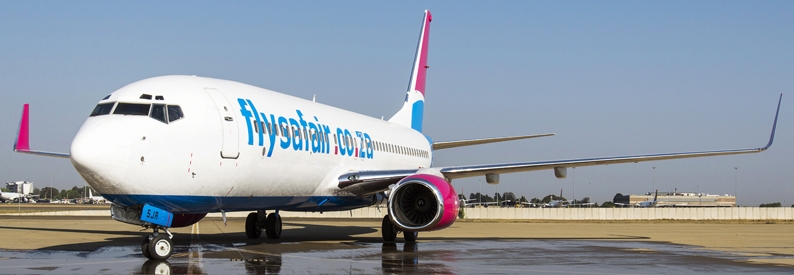FlySafair Seeks Refund Over O.R. Tambo Refueling Delays

FlySafair (FA), based at Johannesburg O.R. Tambo International Airport, has formally requested a refund from the Airports Company South Africa (ACSA) due to passenger charges incurred from significant flight delays. These disruptions were caused by a temporary failure in the airport’s refueling system on December 9, severely impacting a third of all flights during Southern Africa’s peak summer holiday season.
The incident, which occurred at the start of the busy holiday period, highlighted critical vulnerabilities in the airport’s infrastructure. FlySafair criticized ACSA for the lack of adequate contingency measures, labeling the situation as entirely preventable. Kirby Gordon, FlySafair’s Executive Manager and Chief Marketing Officer, stated, “We believe this situation was entirely preventable and that sufficient contingency systems should have been in place to avoid this failure. This is critical infrastructure, and incidents like this should not be allowed to occur.”
According to ACSA, the technical failure was due to a sheared drive shaft in the fuel system, which halted the pumping of jet fuel from storage tanks to the aprons. This malfunction lasted four hours, from 0905L (0705Z) to 1301L (1101Z), causing a cascade of delays that disrupted flights until 2300L (2100Z). The outage affected 483 flights and 49,429 passengers, resulting in 31 flight cancellations. While all airlines operating at the hub were impacted, some managed to mitigate the disruption by tankering extra fuel on flights bound for Johannesburg.
O.R. Tambo International Airport is a major hub, typically handling around 1,500 flights and 110,000 passengers daily. The December 9 incident affected approximately a third of the daily flights and half of the passengers, underscoring the severity of the refueling system failure.
In response to the failure, ACSA has initiated an emergency valve replacement to enhance future reliability. The airport management company is also part of a ZAR1.5 billion rand (USD84.5 million) capital investment program aimed at upgrading the fuel system’s reliability. Key upgrades include a new 1.8-kilometer jet fuel line expected to be completed by March 2026 and a bypass mechanism to be implemented by February 2025. These measures are designed to prevent similar disruptions in the future and ensure the resilience of the airport’s fuel supply infrastructure.
The incident at O.R. Tambo is not isolated. Two years ago, the airport experienced a failure of its main fuel valve, which prompted concerns about the overall integrity of the fuel system. In mid-2024, ACSA responded by modifying the tank configuration to allow the airport to receive larger fuel volumes from the coastal pipeline, aiming to bolster the fuel supply capacity and reduce dependency on single points of failure.
The Airlines Association of Southern Africa (AASA) has expressed serious concerns regarding the system breakdown, its management, and the insufficient contingency measures in place. The association urged ACSA to expedite the installation of the promised backup bypass line, part of the fuel supply resilience plan established after the December 2022 valve failure. “We urge ACSA to expedite the installation of the backup bypass line that was promised as part of the fuel supply resilience plan after the previous main supply valve failure in December 2022,” AASA stated, emphasizing the need for robust measures to prevent future disruptions.
FlySafair’s refund request underscores the airline’s frustration with the operational failures at O.R. Tambo, highlighting the critical need for reliable infrastructure to support the region’s aviation sector. As the busiest airport in Southern Africa, ensuring the reliability and efficiency of its fuel systems is paramount to maintaining smooth operations and customer satisfaction.
The refueling system failure at Johannesburg O.R. Tambo International Airport has had a significant impact on FlySafair and other airlines, prompting calls for improved infrastructure and contingency planning. FlySafair’s request for a refund reflects the broader challenges faced by airlines in maintaining seamless operations amid infrastructural shortcomings. Moving forward, the investments and upgrades promised by ACSA are essential steps towards enhancing the resilience and reliability of one of Africa’s busiest aviation hubs.
Related News : https://suspicious-zhukovsky.67-21-117-18.plesk.page/?s=FlySafair
Sources: AirGuide Business airguide.info, bing.com, ch-aviation.com
